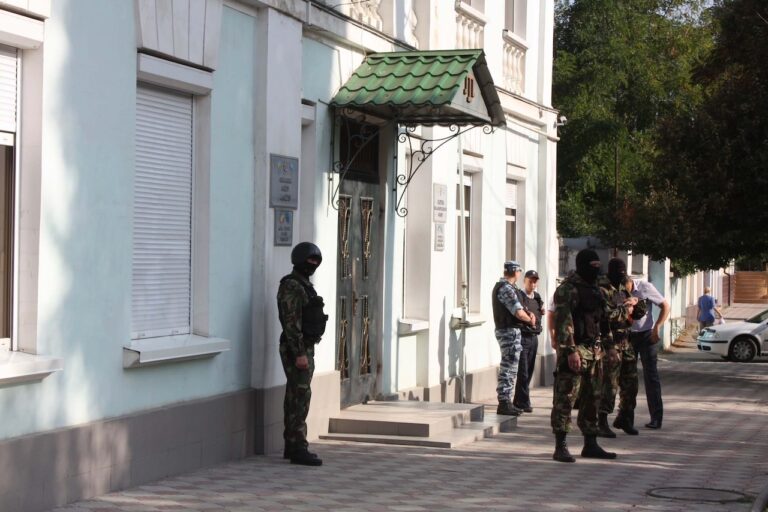(RSF/IFEX) – Reporters Without Borders has called on the Russian interior minister to protect Dodojon Atovulloyev, a Moscow-based Tajik journalist who has been receiving death threats. He edits “Chagory Rus”, a monthly publication about Tajikistan and its relations with Russia. Atovulloyev told Reporters Without Borders on 19 June 2006 that he has been receiving anonymous […]
(RSF/IFEX) – Reporters Without Borders has called on the Russian interior minister to protect Dodojon Atovulloyev, a Moscow-based Tajik journalist who has been receiving death threats. He edits “Chagory Rus”, a monthly publication about Tajikistan and its relations with Russia.
Atovulloyev told Reporters Without Borders on 19 June 2006 that he has been receiving anonymous phone calls on his mobile and at his office for the past two weeks or so in which men using Moscow-region criminal jargon tell him to “shut up” and promise to make him pay if he continues publishing his articles.
A man recently came to the door of his apartment and asked to speak to him, but refused to identify himself. Atovulloyev links the threats to the two latest issues of his monthly, which had a poem that was very critical of Tajik President Imomali Rakhmonov.
“We are very concerned for Atovulloyev’s safety and we take these anonymous threats against him very seriously,” Reporters Without Borders said. “He is particularly exposed because he criticises his country’s leaders and their relations with the Russian authorities. This is not the first time his articles have got him into trouble, and many journalists have been murdered in the past in Russia with complete impunity.”
Reporters Without Borders added: “For all these reasons, we call on Russian interior minister Rashid Nurgaliyev to do everything possible to ensure Atovulloyev’s safety, including placing a watch on his home. If the Russian authorities refuse, Atovulloyev will have no other choice but to seek refuge in a safer country than Russia.”
Atovulloyev was forced to leave Tajikistan after being accused of insulting the president and “inciting national racial and religious hatred” in 2001. He was arrested in July of that year at Moscow airport. Many human rights organisations intervened to prevent his extradition to Tajikistan, where he faced a stiff sentence. He was freed a few days later.
He had received death threats before his arrest in Russia, and several members of his family in Tajikistan were arrested and held for several weeks.
Atovulloyev was granted political asylum in Germany in 2002 and since then he has been based partly in Hamburg and partly in Moscow. The Tajik authorities have dropped the charges against him, but he thinks the Tajik government views his monthly as a cloud over its relations with Russia. And he fears the attempts to intimidate him could continue until Tajikistan’s presidential election in November.


